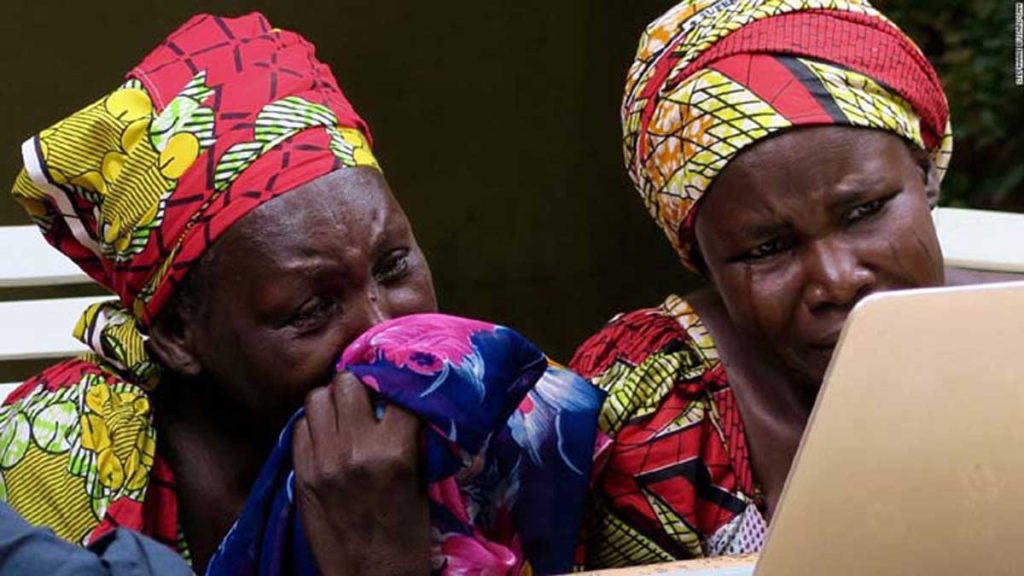
Some parents of the Chibok girls, Yana Galang (right)
Tomorrow, April 14, will mark exactly nine years since the world was jolted to the news of 276 girls – now women – who were students of the Government Girls Secondary School, were crudely abducted from their school in Chibok community of Borno State.
After the bizarre act, which happened in the twilight of former President Goodluck Jonathan’s administration, a hashtag, #BringBackOurGirls (#BBOG) went viral to draw the world’s attention to the victims’ plight after a seeming lethargy from the Federal Government.
The outgoing government of President Muhammadu Buhari campaigned heavily on bringing back the girls and ending in abduction of pupils and other citizens in the country 3, 272 days after, over a hundred of the girls are still missing. A total of 180 were found at different times – some with kids – while 96 are still missing.
Expectedly, the world has moved on from Chibok girls. The Bring Back Our Girls campaign have also gone underground after some brushes with security agents, which abruptly put to an end its daily sit out at the Fountain Square, Abuja early into the Buhari administration.
A few newspapers that kept up a daily count of ‘Where are the Chibok girls’ on its front page had it dropped, The Guardian has kept the count on its Panorama page, and with no formidable pressure on government, sadly, the fate of the remaining 100 plus girls, who are now mothers, seems to have been consigned to the dustbin of history.
But as mass abduction of pupils now become the norm that no longer jolts the world to action, relatives of the Chibok girls go to bed each night hoping against hope that the sunshine of the morning would bring with it some cheery news about their loved ones.
One of such relatives is Yana Galang, who, despite the good fortune of having to address the United Nations General Assembly in the United States in 2019 and being featured in a 2020 documentary, Daughters of Chibok, made by a Nigerian filmmaker, Joel Kachi Benson, the pain still endures.
On January 1, this year, she signed a New Year open letter on behalf of parents of the abducted Chibok girls and members of the Chibok community, urging President Buhari to rescue the remaining girls in captivity.
The memo reminded the president of his promise to ensure the release of the captives. “We won’t give up. Even in a hundred years, we will keep believing that our daughters will return home. Are they dead? Are they alive? As a mother, I refuse to accept that my daughter is dead or alive, until I have heard reliable news. Until we all die, we won’t stop believing that our daughters will come back,” she wrote.
Another parent, Ishaya has only one picture of his daughter, Hauwa, but looking at it brings anguish. “It is still hard for me to look at her picture,” he said.
“These thoughts in my head, they make me suffer. No day goes by without thinking of her. Even if our girls have died, we want somebody to inform us. Because then we can finally give up hope.”
For the parents, the agonising pain and uncertainty has been unbearable. Many have died because of sorrow-induced health issues. “We lost 38 parents in the first three years of this kidnapping,” Yakubu Nkeki, chairman of the Chibok Girls’ Parents’ Association, said. “The slightest illness can take their life due to high blood pressure. They are in so much pain, because they think too much.”
